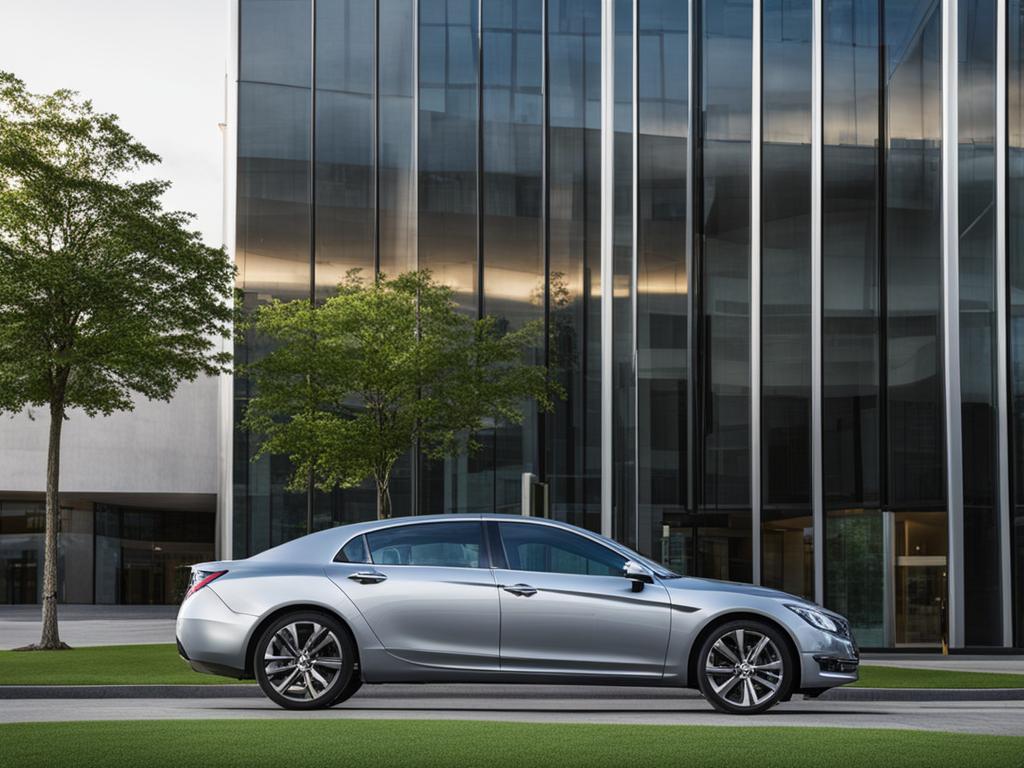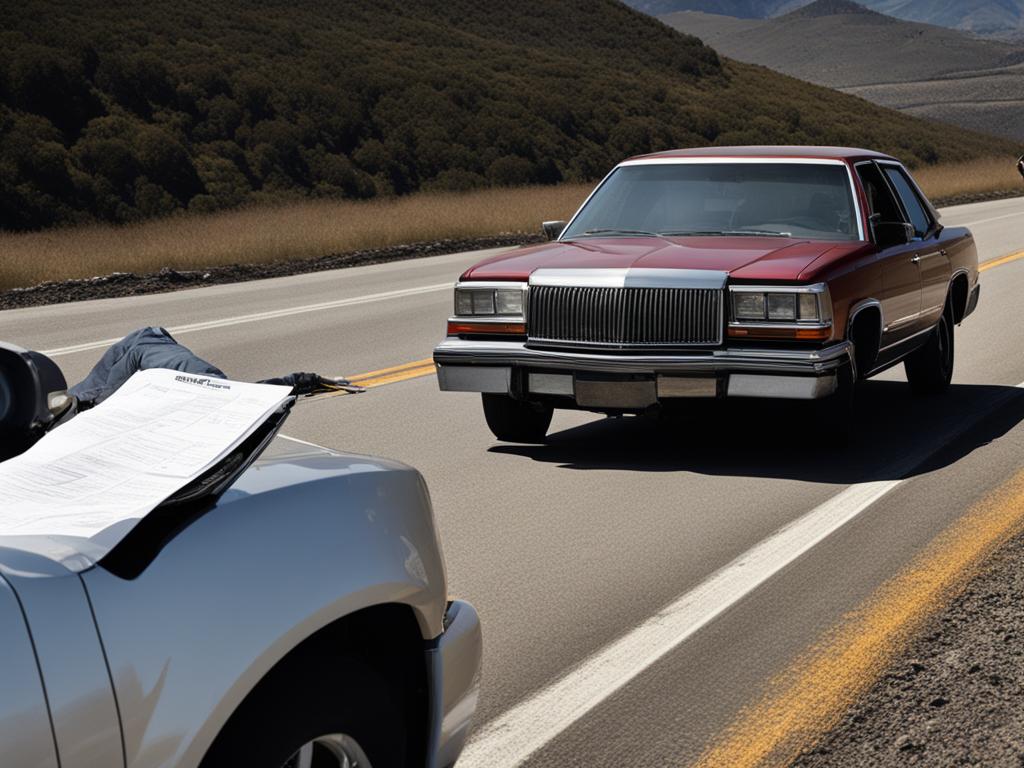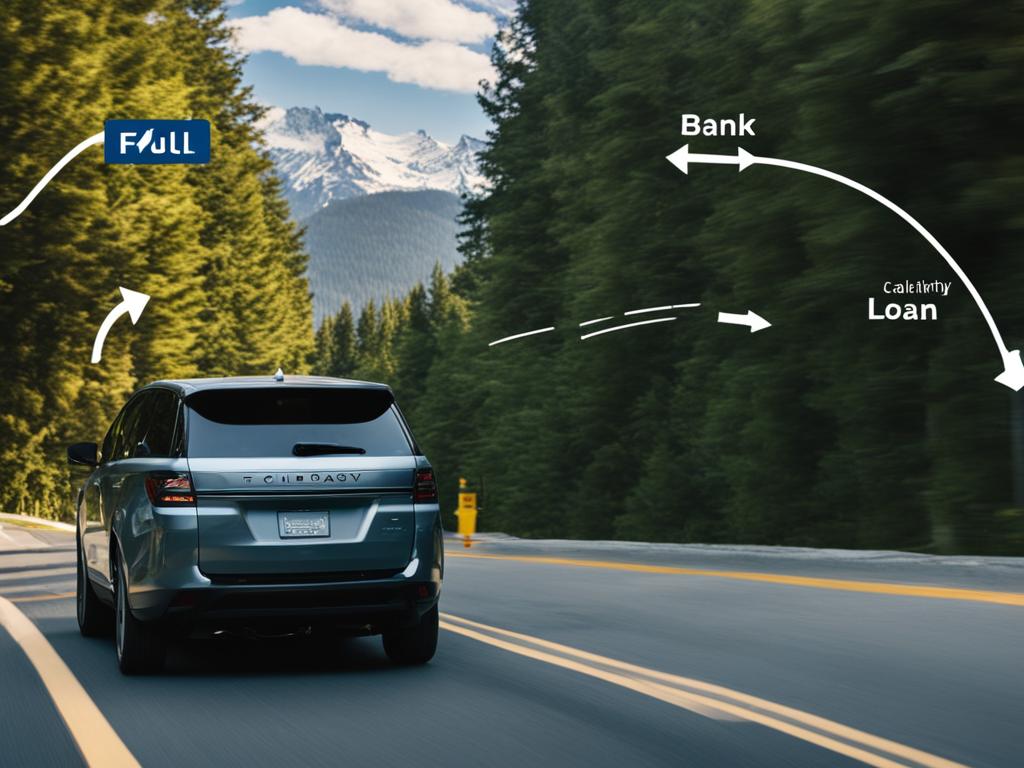Is Full Coverage Needed on Financed Cars?
When purchasing a financed vehicle, you might wonder, “do you need full coverage on a financed car?” Lenders typically require financed car insurance, which includes not only state-mandated coverage, but also collision and comprehensive insurance. The reason behind this requirement is the protection of the vehicle, which serves as collateral for the loan. Continue reading to gain a better understanding of auto insurance for financed cars and the advantages it could provide both to you and your lender.
Key Takeaways
- Auto insurance for financed cars often includes state-mandated coverage, collision, and comprehensive insurance.
- Lenders require full coverage to protect their investment in the vehicle.
- Full coverage provides greater financial protection for you in case of accidents, theft, or damage.
- Upon paying off a car loan, borrowers can opt to adjust their full coverage policy, but maintaining it can provide continued comprehensive protection.
- It is essential to remain in compliance with auto insurance requirements as per your lender to avoid contract violations and potential risks such as repossession.
Understanding Full Coverage Car Insurance
Full coverage car insurance is a significant aspect to consider when acquiring a policy for an financed vehicle. This type of coverage is comprehensive and ensures you are protected from various risks. It is important to comprehend the different components of full coverage insurance policies when determining the best option for your financed automobile.
Defining Full Coverage: What Does it Include?
Full coverage insurance for financed cars is a policy that combines state-required liability coverages, such as bodily injury (BI), property damage (PD), uninsured/underinsured motorist (UM/UIM), and personal injury protection (PIP) or medical payments (MedPay) in some states, with collision and comprehensive insurance. This combination ensures coverage for various risks, including property damage, bodily injury, vehicle-related damages from collisions, theft, vandalism, and even natural disasters. Additionally, medical expenses and lost wages resulting from accidents are typically covered under full coverage policies.
The Six Types of Coverage Explained
A comprehensive car insurance for financed cars policy generally comprises six primary types of coverage:
- Liability insurance for damage or injury to others;
- Collision coverage for damages to your vehicle in an accident;
- Comprehensive coverage against theft or damage from non-collision events;
- Personal injury protection for medical and other expenses after an accident;
- Medical payments coverage for medical and funeral expenses following an accident; and
- Uninsured/underinsured motorist coverage for injuries or damages from an inadequately insured driver.
The Role of GAP Insurance in Full Coverage
GAP insurance for financed cars is an additional component of a full coverage policy that is often prescribed by lenders to be maintained for the entirety of the auto loan’s duration. GAP coverage fills the monetary gap between the actual value of the vehicle in the event of a total loss and the remaining loan balance, ensuring that borrowers are not left paying for a nonexistent car. However, not all insurance companies offer GAP coverage, and it may not always be required. It is essential for borrowers to discuss this with their lenders to understand the necessity of this add-on when fulfilling the insurance requirements for financed vehicles.
Do You Need Full Coverage on a Financed Car?

Securing full coverage on a financed car is often a lender’s stipulation in order to protect their collateral—the vehicle. As such, they may set certain car insurance requirements for financed vehicles. This is because, without comprehensive and collision coverage, scenarios such as theft or total damage can result in the borrower being obliged to repay the loan even though the car may no longer be in use or existence.
You may also like: Mastering How to Get Siding Replaced by Insurance
While the minimum car insurance for financed cars typically includes state-mandated liability coverage, it might not be enough to safeguard the interests of both the lender and borrower. As a result, it is essential for those financing a vehicle to consider comprehensive and collision coverage and adhere to lender requirements.
Be aware of your lender’s requirements for full coverage on a financed car and make sure your insurance policy adheres to these stipulations.
Once the loan is fully paid off, borrowers can opt to drop certain types of coverage from their insurance, as they are no longer required to comply with the lender’s stipulations. However, maintaining full coverage even after clearing the loan can provide broader financial security, as it encompasses a wide range of potential risks and eventualities.
In conclusion, while obtaining full coverage insurance for a financed car is primarily a lender requirement, it is also a practical decision that helps protect borrowers from various risks. It is essential to choose the right policy that aligns with one’s financial situation and the lender’s requirements. Furthermore, keeping full coverage after the loan is repaid can be a prudent choice for ensuring continued protection against a variety of incidents that might impact one’s vehicle.
Cost Implications of Full Coverage Insurance for Financed Cars
Understanding the costs associated with full coverage insurance for financed cars is crucial to make an informed decision. Insurance premiums can vary significantly between providers and depending on several factors that can influence your rates. In this section, we’ll examine the comparison of insurance premiums and the factors which influence full coverage insurance rates.
Comparing Insurance Premiums
Nationally, the average annual cost for full coverage insurance in the United States is around $1,730. However, this amount varies among providers, with rates fluctuating according to your individual circumstances. For instance, a married 35-year-old driver with a clean record can expect monthly costs ranging from $88 with USAA to $174 with Allstate. Comparing rates among different insurance companies will help ensure you find the optimal auto insurance for financed cars rates.
Factors Influencing Full Coverage Insurance Rates
Insurance rates for financed car insurance cost are affected by several elements. These factors include:
- Vehicle value: The make, model, and age of your car impact the cost of full coverage insurance for financed vehicles.
- Credit score: Drivers with higher credit scores tend to be offered lower premium rates.
- Driving history: A clean driving record will likely result in lower costs for your car insurance coverage for financed vehicles rates.
- Geographical location: Where you live and park your car can influence your rates, with urban areas generally having higher premiums due to increased risk.
Beyond these factors, your choice of deductible can also impact the cost of full coverage insurance for financed vehicles. Opting for a higher deductible typically leads to lower premiums, while lower deductibles may result in higher rates.
The Risks of Not Having Full Coverage on Financed Vehicles
Adhering to insurance requirements when financing a car is critical to ensuring a positive experience for both borrowers and lenders. Failing to maintain full coverage on financed cars can lead to significant consequences, including potential contract violations and higher premiums.
Contract Violations and Repossession Risks
Ignoring the insurance requirements outlined in a financed vehicle insurance contract is risky; it can result in a violation of the terms. The consequence of not having full coverage insurance on financed cars is that lenders may have the legal authority to revoke the auto loan and repossess the vehicle. This risk of repossession for financed vehicles without full coverage also exposes borrowers to financial losses and possible legal action.
The Consequences of Force-Placed Insurance
Lenders have another protection measure in place if borrowers neglect their contractual insurance obligations – they may impose a force-placed insurance policy. This type of coverage typically comes with significantly higher premiums for the borrower when compared to a standard full coverage policy. Although force-placed insurance for financed cars serves the lender’s protection interests, it reiterates the importance of borrowers adhering to their financed vehicle insurance contract stipulations.
To avoid jeopardizing your contract or facing the costly consequences of force-placed insurance, it is essential to understand and comply with your lender’s insurance requirements for your financed vehicle.

Transitioning from Full Coverage After Paying Off a Financed Car
Once you have paid off your car loan, you no longer need to maintain the full coverage car insurance required by lenders. At this point, you can reassess your insurance needs and explore options to reduce insurance coverage after car loan payoff or make other adjustments based on your financial situation. It’s important to involve your insurance provider in these decisions to ensure your policy accurately reflects your coverage needs without a lienholder.

Adjusting Your Coverage
After your loan is paid off, you may consider car insurance coverage adjustments post-loan and opt for a less expensive, minimum required policy. This can include evaluating your liability, comprehensive, and collision coverage or raising your deductible to lower your premium. Always consult with your insurance agent before making changes to guarantee that you retain an adequate level of protection according to your state’s requirements.
Shopping Around for Optimal Insurance Plans
Once you are no longer bound by lender coverage requirements, it’s worth comparing post-financing car insurance options to find the most competitively-priced plan for your needs. Start by soliciting quotes from different providers, seeking out discounts, and reviewing policy endorsements to customize your new coverage. When shopping for cheaper car insurance after loan payoff, prioritize a balance between cost savings and an appropriate level of coverage based on your specific risk profile and preferences.
Conclusion
When it comes to financing a car, it’s essential to be aware of your obligations regarding insurance coverage and ensuring compliance with your auto loan terms. Lenders typically mandate full coverage insurance for financed cars, safeguarding both their investment in the vehicle and providing comprehensive protection for the borrower throughout the loan period. By meeting these financed vehicle insurance obligations, you can avoid potential contract breaches and the risk of repossession.
Aligning Insurance with Lender Requirements
To ensure a smooth financing experience, it is crucial to align your insurance policy with your lender’s requirements. This will likely entail securing a full coverage policy, incorporating state-required liability coverages, collision coverage, and comprehensive coverage. By doing so, you can protect yourself and the lender from potential financial losses, while avoiding any contractual issues that could arise from inadequate insurance coverage.
Benefits of Full Coverage Beyond the Loan Duration
While full coverage insurance is necessary for the duration of the car loan, you might consider maintaining it even after you have paid off the loan in full. The advantages of maintaining full coverage on a financed car post-loan include continuous protection against theft, accidents, and other damages, offering you peace of mind while safeguarding your valuable asset. Ultimately, the decision to keep or adjust your full coverage policy will depend on your specific needs and financial circumstances, but it’s always worth considering its benefits even after the necessity of lender requirements ceases.
FAQ
Is full coverage insurance required for financed cars?
Yes, full coverage insurance is typically required by lenders when financing a car. This is to protect their investment in the vehicle, which serves as collateral for the loan.
What does full coverage insurance include?
Full coverage insurance usually combines state-required liability coverages with collision and comprehensive insurance. This ensures coverage for various risks, including property damage, bodily injury, vehicle-related damages from collisions, theft, vandalism, and natural disasters.
What are the six types of coverage in a full coverage policy?
The six primary types of coverage in a full coverage policy are:
1. Liability insurance for damage or injury to others
2. Collision coverage for damages to your vehicle in an accident
3. Comprehensive coverage against theft or damage from non-collision events
4. Personal injury protection for medical and other expenses after an accident
5. Medical payments coverage for medical and funeral expenses following an accident
6. Uninsured/underinsured motorist coverage for injuries or damages from an inadequately insured driver
How does GAP insurance fit into full coverage?
GAP insurance is an additional component of full coverage policies, often required by lenders. It fills the monetary gap between the vehicle’s actual value in the event of a total loss and the remaining loan balance, ensuring that borrowers are not left paying for a nonexistent car.
How much does full coverage insurance for financed cars cost?
Full coverage premiums can vary considerably between insurers, with the national average sitting around
FAQ
Is full coverage insurance required for financed cars?
Yes, full coverage insurance is typically required by lenders when financing a car. This is to protect their investment in the vehicle, which serves as collateral for the loan.
What does full coverage insurance include?
Full coverage insurance usually combines state-required liability coverages with collision and comprehensive insurance. This ensures coverage for various risks, including property damage, bodily injury, vehicle-related damages from collisions, theft, vandalism, and natural disasters.
What are the six types of coverage in a full coverage policy?
The six primary types of coverage in a full coverage policy are:
1. Liability insurance for damage or injury to others
2. Collision coverage for damages to your vehicle in an accident
3. Comprehensive coverage against theft or damage from non-collision events
4. Personal injury protection for medical and other expenses after an accident
5. Medical payments coverage for medical and funeral expenses following an accident
6. Uninsured/underinsured motorist coverage for injuries or damages from an inadequately insured driver
How does GAP insurance fit into full coverage?
GAP insurance is an additional component of full coverage policies, often required by lenders. It fills the monetary gap between the vehicle’s actual value in the event of a total loss and the remaining loan balance, ensuring that borrowers are not left paying for a nonexistent car.
How much does full coverage insurance for financed cars cost?
Full coverage premiums can vary considerably between insurers, with the national average sitting around $1,730 annually. Premiums differ based on numerous factors including driving records, credit scores, and marital status.
What are the risks of not having full coverage on a financed vehicle?
Failure to maintain full coverage on a financed vehicle can result in contract violations, giving lenders the legal authority to revoke the auto loan and repossess the car. Additionally, the lender may impose a force-placed insurance policy, which generally incurs significantly higher premiums paid by the borrower.
Can I adjust my insurance coverage after paying off my financed car?
Yes, upon settling the full balance of the car loan, you can reevaluate your insurance coverage and potentially reduce it down to state minimum requirements or make other adjustments. It is essential to communicate such changes with your insurance provider to disassociate the lender from the lienholder position on the policy.
Should I shop around for new insurance plans after paying off my car loan?
Yes, it is wise to shop for car insurance after paying off your car loan to find potentially more favorable rates or coverage. Comparing quotes from multiple providers, seeking discounts, adjusting coverage levels, and handling deductibles flexibly can help you find a plan that aligns with your current needs and budget.
,730 annually. Premiums differ based on numerous factors including driving records, credit scores, and marital status.
What are the risks of not having full coverage on a financed vehicle?
Failure to maintain full coverage on a financed vehicle can result in contract violations, giving lenders the legal authority to revoke the auto loan and repossess the car. Additionally, the lender may impose a force-placed insurance policy, which generally incurs significantly higher premiums paid by the borrower.
Can I adjust my insurance coverage after paying off my financed car?
Yes, upon settling the full balance of the car loan, you can reevaluate your insurance coverage and potentially reduce it down to state minimum requirements or make other adjustments. It is essential to communicate such changes with your insurance provider to disassociate the lender from the lienholder position on the policy.
Should I shop around for new insurance plans after paying off my car loan?
Yes, it is wise to shop for car insurance after paying off your car loan to find potentially more favorable rates or coverage. Comparing quotes from multiple providers, seeking discounts, adjusting coverage levels, and handling deductibles flexibly can help you find a plan that aligns with your current needs and budget.
Related keywords: do you need full coverage on a used financed car, do you need full coverage on a financed used car, do you need full coverage insurance on a financed car, do you need full coverage on a financed car reddit, why do you need full coverage on a financed car

